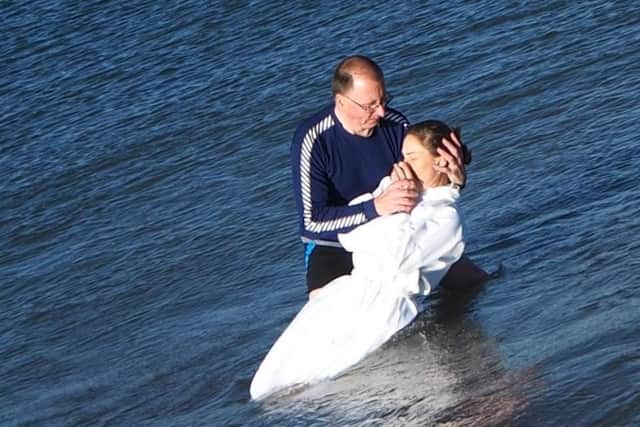Northern Ireland Census: Unbelievers overtake Presbyterians in share of NI population
and live on Freeview channel 276
Although around 80% of people still identify as ‘Christian’, the census shows that 17.4% (331,000) have “no religion” – an increase on the 10.1% figure 10 years ago, and slightly more than the number of Presbyterians (316,000) the largest Protestant denomination in Northern Ireland.
The group NI Humanists says the number of people identifying as non-religious has almost doubled in 10 years.
Advertisement
Hide AdAdvertisement
Hide AdBy contrast, it pointed out that all Christian denominations, except for Catholic and ‘Other Christian’, shrank over the same period:


:: The Catholic share grew from 40.76% 41% to 42.31%;
:: Presbyterians shrank from 19.06% to 16.61%;
:: Church of Ireland from 13.74% to 11.55%;
:: And Methodists from 3% to 2.35%.
Meanwhile ‘other Christian’ grew from roughly 6% to 7% and ‘other religions’ stayed at about 1%.
Dr Paul Coulter, Executive Director of the Centre for Christianity in Society in NI, said this is a Europe-wide trend driven by two main factors.
“Firstly, with increasing standards of living and greater accessibility of entertainment, many people feel less need for help beyond themselves as past generations, at least when times are good,” he said.
Advertisement
Hide AdAdvertisement
Hide Ad“That is likely to explain why the areas of Northern Ireland with the highest rates of non-religious people are also some of the most economically advantaged.
“Secondly, our culture, especially among younger people, is increasingly suspicious of authority figures and truth claims and places a greater emphasis on self-actualisation.”
However he added that he is convinced that Christianity has “nothing to fear” from other faiths in religious education, which he said is “vital for life in our globalised world”.
Rev Trevor Gribben, Clerk of the Presbyterian General Assembly, said it is “interesting to note that eight in 10 people still identify with a faith tradition that is overwhelmingly Christian”.
Advertisement
Hide AdAdvertisement
Hide AdHe added: “This is an important reminder that concern with the spiritual aspects of our humanity is just as significant as concern for the emotional, physical and mental aspects of our being.
“When the headlines about census figures are forgotten, churches will continue serving their communities through lunch clubs, parent and toddler groups, school uniform swaps, youth centres and in many other ways, pointing people to Jesus who cares deeply for them.”
NI Humanists coordinator, Boyd Sleator, said this week: “The biggest demographic change in Northern Ireland in the last 10 years has been the dramatic growth of the non-religious.
“The implications of this trend are wide-ranging but, given that younger people are more likely to be non-religious, they are especially urgent in relation to our school system.
“We now have an increasingly untenable situation where a fifth of the population are not Christian but 100% of our schools are.”